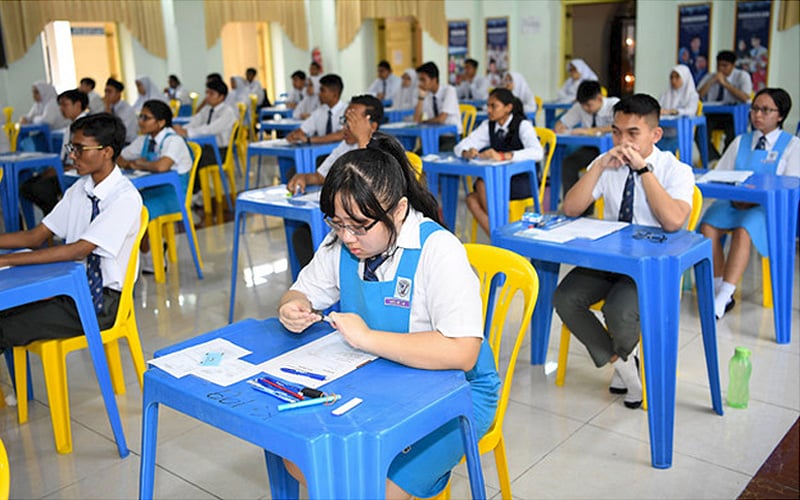
From Nor Aishah Hanifa
It has been 66 years since we achieved independence and 60 years since Malaysia was formed. We still talk and debate about unity among Malaysians, particularly the role the education system plays in instilling unity among our young ones.
When Malaysia inherited its education system from the British, our leaders and policymakers made many changes to fit the national identity and contribute to nation-building.
Bahasa Melayu became the national language in accordance with our Federal Constitution, while English became the second language, and the vernacular education system which started during the British rule, continues till today. Chinese schools and Tamil schools function as another stream of our education system, adopting the national education philosophy and curriculum.
Whenever the topic of unity is brought up, politicians and civilian groups often raise the vernacular system and its relevance to nation-building.
They feel that the vernacular education system is the real hindrance to achieving national unity and a weakening line of nation-building. There are numerous pledges from certain groups to abolish the vernacular education system without considering the concern of minority Malaysians.
As far as I’m concerned, the vernacular education system is not the obstacle in reaching this goal. Abolishing the system after 66 years is a weak and irrational argument. It’s akin to uprooting a well-grown tree, which has balanced the ecosystem.
Vernacular education has become part and parcel of Malaysian Chinese and Indian societies. The system demonstrates the democracy we believe in, that all societies have the basic freedom to practice their languages and cultures. The Malaysian government has always supported that in accordance with our constitution.
Undeniably, vernacular education contributes enormously to nation-building, though it cannot be measured. But even many Malay families are sending their children to vernacular schools, upon realising the quality of education provided there.
I have no intention here to criticise national schools, but it is a waste to abolish a system that has contributed to the nation. If we’re talking about national unity, let’s focus on how the existing education system can be organised to become an instrument to strengthen national unity.
There is a dire need to repair and restore our entire education system to strengthen national unity. In fact, this work should have been done when we obtained our independence or when Malaysia was formed. But it’s still not too late, we just need further innovation.
Malaysia’s various communities can be united through the knowledge of the four major languages. Bahasa Melayu would remain as our national language in all school streams, while English is accepted as the second language.
After all, some schools teach maths and science in English. But Mandarin and Tamil languages should also be introduced in all schools irrespective of streams.
How do we implement this? In national schools, the Mandarin and Tamil languages could be taught to students as compulsory additional subjects, with maybe two classes per week. In Chinese schools, the Tamil language should be made a compulsory subject, and vice versa in Tamil schools.
There should be different sets of SPM papers for the Tamil and Mandarin language exams. The current one, which demands complete literacy, should be maintained, but basic or intermediate-level papers should also be introduced for those who learn the languages as an additional subject.
An environment with no communication barriers allows students to grow in mutual understanding and mutual respect with their fellow schoolmates, which would lead to national unity.
Issues concerning national unity are often linked to misunderstandings and misperceptions about each other in a multiracial community. Learning languages is the solution.
We can expect dissatisfaction and opposition from some groups of people and politicians. But this plan will not jeopardise the status of Bahasa Melayu. Instead, it will motivate people to learn Bahasa Melayu.
Malaysians need to realise that, when a student knows four languages, they also gain access to the knowledge nurtured by the different languages.
Some groups here like to compare Malaysia to Indonesia when they talk about unity. But Indonesia adopted assimilation since its independence, while Malaysia adopted integration as its national approach. This is not the time to compare ourselves to Indonesia.
This is the time for us to look inwardly at our problems and find solutions that will not come at the expense of the existing system. Every Malaysian needs to realise that our historical routes are different, and Malaysia should invent its own education route in nation-building. It needs to be rational and practical for the nation. - FMT
Nor Aishah Hanifa is a senior lecturer at the National Defence University of Malaysia.
The views expressed are those of the writer and do not necessarily reflect those of MMKtT



No comments:
Post a Comment
Note: Only a member of this blog may post a comment.